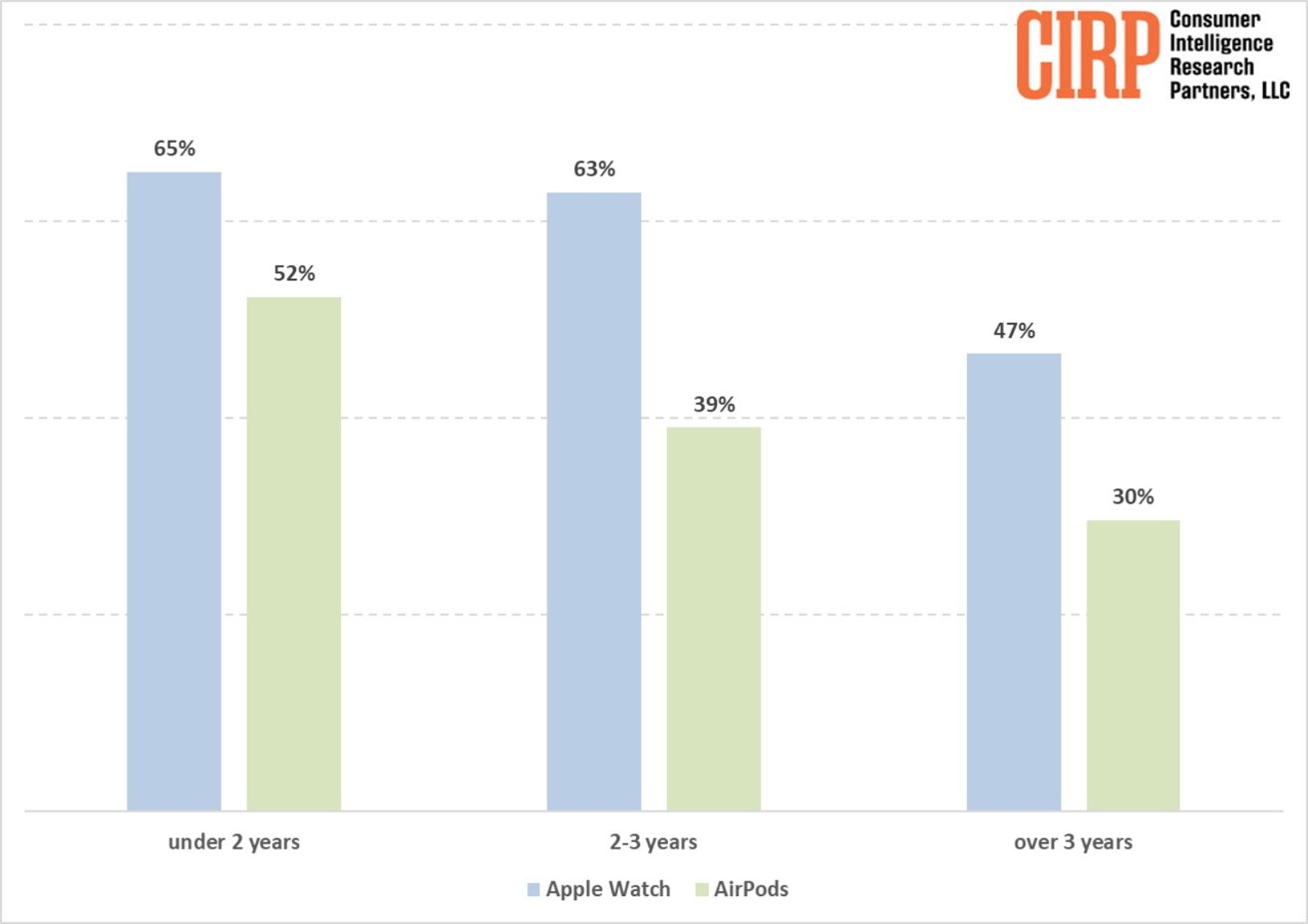Apple’s iPhone 16 launch grabbed headlines, but it’s the quiet stars of the show, the new Apple Watch and AirPods, that affect how iPhone buyers stay connected to the Apple ecosystem.
During Apple’s “Glowtime” event, the company unveiled a new Apple Watch and the latest generation of AirPods. These two accessories, which have become integral to the Apple ecosystem, introduced some exciting new features.
For many Apple customers, particularly those who invest in the latest iPhone models, these accessories enhance their experience within the Apple ecosystem.
A significant portion of iPhone buyers also own an Apple Watch or AirPods. According to research by Consumer Intelligence Research Partners (CIRP), 60% of iPhone buyers in the twelve months ending June 2024 also owned an Apple Watch, while more than a third owned AirPods.
That Apple Watch ownership is an increase from 2022 when the wearable was owned by 30% of iPhone users.
Apple accessory ownership among iPhone buyers, categorized by the age of their previous phone (data from the twelve months ending June 2024)
These numbers highlight the importance of these devices to Apple’s overall product strategy. Apple Watch and AirPods aren’t just afterthoughts — they’re critical components of the ecosystem that keep customers coming back to Apple.
However, not all iPhone buyers invest in these accessories at the same rate. Buyers who upgrade their iPhones more frequently will likely own Apple Watch and AirPods.
In contrast, people who have held onto their phones for three years or more are less likely to purchase these accessories.
The data provides a notable insight into how the age of a customer’s previous iPhone impacts their likelihood of owning other Apple products. Apple iPhone buyers who upgrade their phones more frequently — those who replace their devices every two years or less — are far more likely to own both an Apple Watch and AirPods.
Meanwhile, nearly two-thirds of these frequent upgraders own an Apple Watch, compared to less than half of those who hold onto their iPhones for three years or more. Similarly, over half of the frequent upgraders own AirPods, while only 30% of those with older phones do.
The success of Apple Watch & AirPods
Apple’s strategy of integrating these accessories into the iPhone ecosystem has paid off. Both the Apple Watch and AirPods rely on the iPhone to function optimally, but they have become successful businesses in their own right.
Apple Watch, in particular, stands out in the wearables market, where it competes primarily with fitness trackers. While several brands have tried to offer competing smartwatches, none have matched Apple Watch’s range of features and seamless integration with the iPhone.
On the other hand, AirPods face stiffer competition from a wide array of Bluetooth earbuds, including premium options from brands like Sony and Bose. Still, AirPods remain a favorite among iPhone users, thanks to their ease of use and deep integration with Apple devices.
These devices may not generate the same excitement as the latest iPhone, but for many Apple customers, they are an essential part of their experience.
In the coming months, we expect Apple to release updates for its other product lines, like the iPad and Mac. However, for now, the focus remains on the iPhone and its complementary devices, which continue to play a vital role in Apple’s strategy of creating a seamless, interconnected ecosystem of products.





